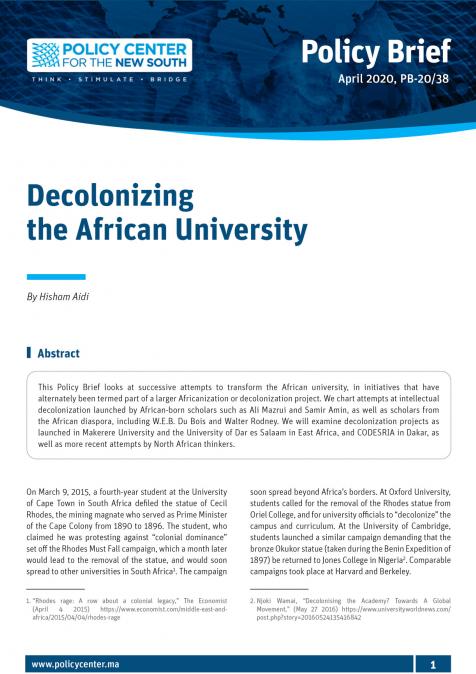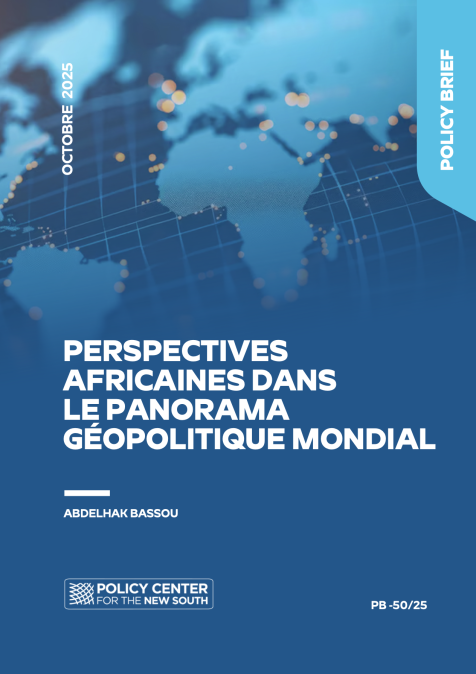Publications /
Policy Brief
This Policy Brief looks at successive attempts to transform the African university, in initiatives that have alternately been termed part of a larger Africanization or decolonization project. We chart attempts at intellectual decolonization launched by African-born scholars such as Ali Mazrui and Samir Amin, as well as scholars from the African diaspora, including W.E.B. Du Bois and Walter Rodney. We will examine decolonization projects as launched in Makerere University and the University of Dar es Salaam in East Africa, and CODESRIA in Dakar, as well as more recent attempts by North African thinkers.
On March 9, 2015, a fourth-year student at the University of Cape Town in South Africa defiled the statue of Cecil Rhodes, the mining magnate who served as Prime Minister of the Cape Colony from 1890 to 1896. The student, who claimed he was protesting against “colonial dominance” set off the Rhodes Must Fall campaign, which a month later would lead to the removal of the statue, and would soon spread to other universities in South Africa.











